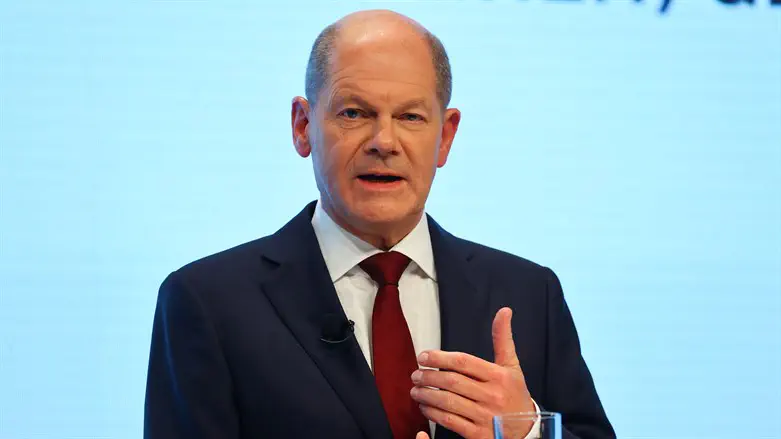
Germany is set to increase its weapons deliveries to Israel soon, Chancellor Olaf Scholz announced on Thursday, according to Reuters.
The announcement follows a marked decline in shipments to Israel this year, which had led to criticism from the opposition that Berlin was intentionally delaying the exports.
"We have not decided not to supply weapons. We have supplied weapons and we will supply weapons," Scholz told parliament during an event honoring the victims of the Oct. 7 Hamas attack, in response to accusations from opposition leader Friedrich Merz.
The government has made decisions "that also ensure that there will be further deliveries soon," Scholz added, as quoted by Reuters.
Merz, leader of Germany’s conservative opposition, had criticized the government for allegedly delaying arms shipments to Israel, including crucial supplies like ammunition and spare parts for tanks.
Germany’s arms export approvals for Israel saw a significant decline this year, with only 14.5 million euros' worth of permits granted from January to August 21, according to figures from the Economy Ministry.
In contrast, in 2023, Germany approved arms exports to Israel amounting to 326.5 million euros, including military equipment and war weapons, marking a tenfold increase from 2022, according to data from the same ministry, which is responsible for export licenses.
Responding to the decline in exports, the German government has denied any form of arms export embargo on Israel, emphasizing that export permits are assessed on a case-by-case basis.
Scholz visited Israel in the early days of the war last year, meeting with Prime Minister Benjamin Netanyahu and with President Isaac Herzog.
The Chancellor also felt firsthand what Israelis are going through, when a rocket barrage was launched at Tel Aviv and central Israel as he was preparing to depart from Ben Gurion Airport, prompting the evacuation of the Chancellor's plane.
Scholz said in November that he opposed an "immediate" ceasefire in the Gaza Strip. Several months later, in March, he visited Israel for the second time during the war, and this time called for a hostage deal with a longer-lasting ceasefire.
